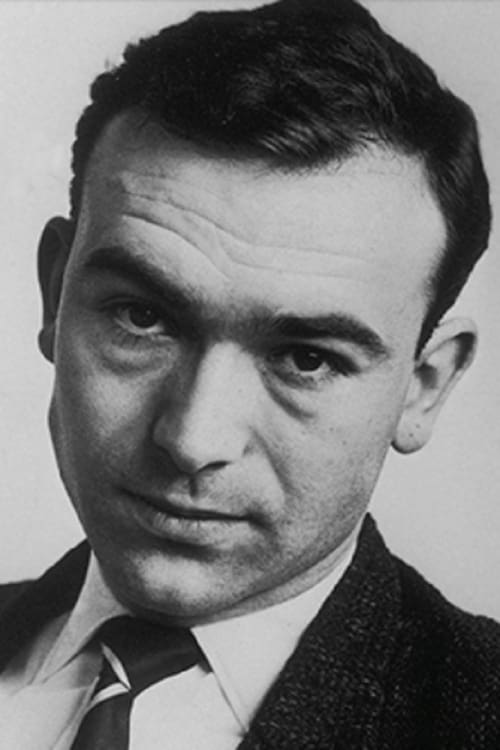Fernando Lopes
출생 : 1936-12-28, Alvaiázere, Portugal
사망 : 2012-05-02
약력
Fernando Lopes, GCIH was a Portuguese film director. He was a Film teacher at the Portuguese National Conservatory, nowadays the Lisbon Theatre and Film School (Escola Superior de Teatro e Cinema). He died, aged 76, in Lisbon due to throat cancer.

Cinema and affections from life in images and what goes on outside the frame. 'Snapshots' of shootings and the present-day memory of directors, actors and technicians.

Self
Feature documentary about ex-maverick filmmaker António de Macedo.

Director
Salvador knew Contança and Santiago. He did not know, but admired, Laurence. Among them, Laurence knew Santiago. Constance did not know Laurence. Only Santiago knew Laurence, Constança and Salvador.

K
Cinema is the true life.

Director
Carlos is a famous journalist at the age of 55. His wife, Ada, is the opposite of her husband, a woman with a very active social life, and she is happy and seductive. One day, Carlos accidentally opens a text message on Ada’s cellular telephone. A new world reveals itself before his eyes when he discovers that his wife is seeing another man. With the help of his friend with whom he goes to live, Carlos discovers a universe of virtual lovers and electronic adultery.

Pai
A father and a son. The father will be seventy years old, the son is in his twenties. The son drives the father to the hospital. Classical music in the radio. The father did not know that the son liked classical music, and the son did not know that that would be the last time he would speak to his father. But Mozart asks that souls rejoice, that men rejoice.
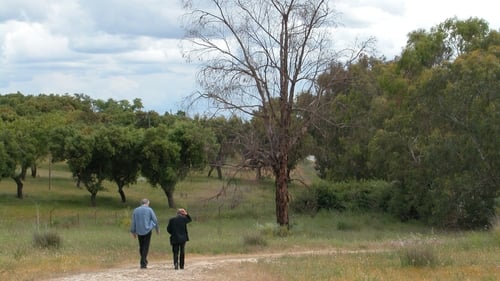
Himself
Mike, half Swiss, half American, is a friend of Portuguese director Fernando Lopes. He’s a painter and has been living in Portugal for 30 years, making him also Portuguese. His stage name is Michael Biberstein. His internationally acclaimed works belong to some of the most important collections and museums around the world. He and Fernando Lopes decided to embrace this adventure after a conversation they had in a mutual friend’s house. The result is this movie: an inner journey about the creation of a painting where its silence, its mystery and magic were filmed.

Director
Mike, half Swiss, half American, is a friend of Portuguese director Fernando Lopes. He’s a painter and has been living in Portugal for 30 years, making him also Portuguese. His stage name is Michael Biberstein. His internationally acclaimed works belong to some of the most important collections and museums around the world. He and Fernando Lopes decided to embrace this adventure after a conversation they had in a mutual friend’s house. The result is this movie: an inner journey about the creation of a painting where its silence, its mystery and magic were filmed.
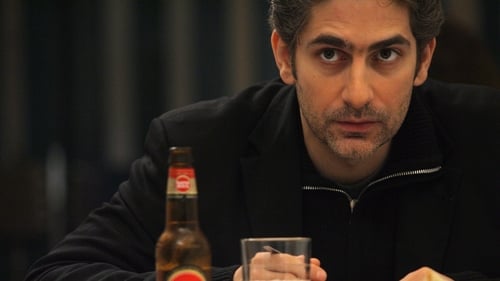
The director
THE LOVEBIRDS intertwines six stories about love, friendship and survival. The film stars an international cast of American and Portuguese actors who create a colorful mix of off-beat characters that lead us through a complex labyrinth of emotions. Set in the old Romanesque city of Lisbon during the course of one night where love is the art of survival. Written by Anonymous

Himself
Fernando Lopes in the first person: through his words and films, from the village where he was born until Lisbon of present time, we discover the themes and emotions of the work of one of the main authors of portuguese "Cinema Novo".

Carlos Oliveira's literary universe is re-enacted in a studio using the writer’s personal objects and manuscripts, and with the help of Luis Miguel Cintra and Fernando Lopes. Shot with the purpose to document his work in the same way Carlos de Oliveira documented his hometown in Gândara, the film uses all the creative liberty that new digital technology allows in order to recreate the visual and sound records that were also present in the writer and poet’s own work.

Himself
A 58 minute documentary about the life of João Bénard da Costa.

Editor
He and she don't know each other. They randomly meet at a gas station, while drifting. "Where are we going? Far away. Where is that? Near."

Mafioso
He and she don't know each other. They randomly meet at a gas station, while drifting. "Where are we going? Far away. Where is that? Near."

Writer
He and she don't know each other. They randomly meet at a gas station, while drifting. "Where are we going? Far away. Where is that? Near."

Director
He and she don't know each other. They randomly meet at a gas station, while drifting. "Where are we going? Far away. Where is that? Near."

Screenplay
Laura works as a newscaster and José Maria as a stockbroker, and while they live in the same housing complex, their lives never cross directly. Nevertheless, he watches her from a distance, seeing all her movements without her knowledge. But their lives finally meet when he is invited onto her news program. From there, a romance begins which coincides with the desire of two beings who finally find a reason to seek love once again.

Director
Laura works as a newscaster and José Maria as a stockbroker, and while they live in the same housing complex, their lives never cross directly. Nevertheless, he watches her from a distance, seeing all her movements without her knowledge. But their lives finally meet when he is invited onto her news program. From there, a romance begins which coincides with the desire of two beings who finally find a reason to seek love once again.

Writer
A personal tribute to the poet Alexandre O'Neill by his dear friend Fernando Lopes.

Director
A personal tribute to the poet Alexandre O'Neill by his dear friend Fernando Lopes.

Writer
A wealthy landowner, "The Dauphin," enjoys a decadent life of hunting, drinking, and womanizing. He oversees his estate, the Laguna, with his barren wife, his one-armed manservant, and his treasured guard dog. When a sportsman (the film’s narrator) comes to the estate for his annual duck-hunting excursion, he discovers the body of the landowner’s wife floating in the lagoon and the manservant dead on his master’s bed. The Dauphin and his dog are nowhere to be found except for the mysterious barking sounds heard over the lagoon.

Director
A wealthy landowner, "The Dauphin," enjoys a decadent life of hunting, drinking, and womanizing. He oversees his estate, the Laguna, with his barren wife, his one-armed manservant, and his treasured guard dog. When a sportsman (the film’s narrator) comes to the estate for his annual duck-hunting excursion, he discovers the body of the landowner’s wife floating in the lagoon and the manservant dead on his master’s bed. The Dauphin and his dog are nowhere to be found except for the mysterious barking sounds heard over the lagoon.

Director
Life of photographer Gérard Castello-Lopes, disciple of Cartier-Bresson.

Editor
"French television came up with the idea of Se Deus Quiser (but they didn't carry it through), which consisted in inviting six European directors to describe their homeland in a film. When my friend Jacques Dercourt contacted me - he had seen Nós Por Cá Todos Bem at Cannes - I told him I like the idea a lot and I proposed a to Várzea and to my mother, that is, a confrontation between images and sound, memory and sentiment" (Fernando Lopes).

Writer
"French television came up with the idea of Se Deus Quiser (but they didn't carry it through), which consisted in inviting six European directors to describe their homeland in a film. When my friend Jacques Dercourt contacted me - he had seen Nós Por Cá Todos Bem at Cannes - I told him I like the idea a lot and I proposed a to Várzea and to my mother, that is, a confrontation between images and sound, memory and sentiment" (Fernando Lopes).

Director
"French television came up with the idea of Se Deus Quiser (but they didn't carry it through), which consisted in inviting six European directors to describe their homeland in a film. When my friend Jacques Dercourt contacted me - he had seen Nós Por Cá Todos Bem at Cannes - I told him I like the idea a lot and I proposed a to Várzea and to my mother, that is, a confrontation between images and sound, memory and sentiment" (Fernando Lopes).

The city during the beginning of cinema. The typical city at the time of the dictatorship. The New Lisbon of the New Cinema. Lisbon after the Revolution. The white city of foreigners. A geographical and moviegoer screenplay of Lisbon through the images of films and testimonies of several filmmakers who filmed in Lisbon.

Director
Spino, a pathologist, receives an unidentified body which looks familiar to him... himself, 30 years younger.
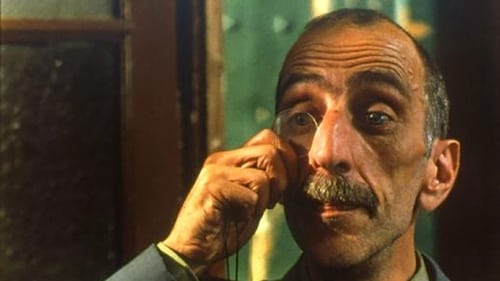
Snooker Player (uncredited)
Lisbon, 1989. A middle-aged poor man, tormented by an illness, lives in a cheap room in a family boarding house, in the old section of the city's waterfront.

Producer
A group of fishermen embark on a new adventure to capture the best pieces on the high seas. They leave from the port of Ondárroa, Vizcaya, to depart towards the Atlantic bottom where they usually fish. After several days of fishing, problems begin to emerge.

Writer
두 차례의 포르투갈 식민지 전쟁에 참가했던 47살의 아벨은 고향으로 돌아가는 대신 프랑스로 이주해 살고 있다. 어느 날 동생에게 어떤 편지를 받은 뒤 고향으로 돌아갈 결심을 한다. 그리고 자신의 과거 약혼자였던 테레사에게 구혼하는 남자들을 제거하기로 결심한다.

Director
두 차례의 포르투갈 식민지 전쟁에 참가했던 47살의 아벨은 고향으로 돌아가는 대신 프랑스로 이주해 살고 있다. 어느 날 동생에게 어떤 편지를 받은 뒤 고향으로 돌아갈 결심을 한다. 그리고 자신의 과거 약혼자였던 테레사에게 구혼하는 남자들을 제거하기로 결심한다.

Producer
This exaggerated mockery of crime cinema tells the story of a gang lead by "Renato, o pacíficio" (Renato, the peaceful) and their attempt to steal precious jewels from the Gulbenkian Museum in Lisbon. The weapon of choice? Bees!

Writer
This exaggerated mockery of crime cinema tells the story of a gang lead by "Renato, o pacíficio" (Renato, the peaceful) and their attempt to steal precious jewels from the Gulbenkian Museum in Lisbon. The weapon of choice? Bees!

Director
This exaggerated mockery of crime cinema tells the story of a gang lead by "Renato, o pacíficio" (Renato, the peaceful) and their attempt to steal precious jewels from the Gulbenkian Museum in Lisbon. The weapon of choice? Bees!

Director
A film by Fernando Lopes.

Screenplay
With a strong documentary element, "Nós Por Cá Todos Bem" mixes professional actors with the inhabitants of a small village, telling the story of a small film crew in a village living day to day.

Editor
With a strong documentary element, "Nós Por Cá Todos Bem" mixes professional actors with the inhabitants of a small village, telling the story of a small film crew in a village living day to day.

Director
With a strong documentary element, "Nós Por Cá Todos Bem" mixes professional actors with the inhabitants of a small village, telling the story of a small film crew in a village living day to day.

Director
Short film by Fernando Lopes, decisive figure of the Portuguese New Wave.

Director
Short film by Fernando Lopes, decisive figure of the Portuguese New Wave.
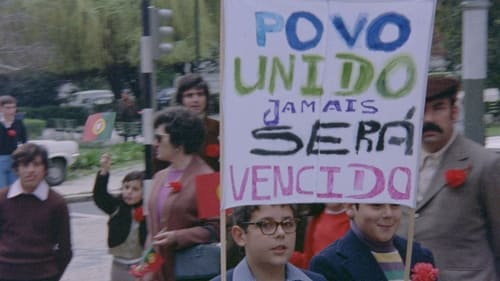
Director
Film directors with hand-held cameras went to the streets of Lisbon from April 25 to May 1, 1974, registering interviews and political events of the Portuguese "Carnations Revolution", as that period would be later known.

Director
Short film by Fernando Lopes, decisive figure of the Portuguese New Wave.

Editor
One of the first films that looks at the Portuguese region of Trás-os-Montes. From the mask called “careto” and the popular festival to the everyday reality.

Director
Short film by Fernando Lopes, decisive figure of the Portuguese New Wave.
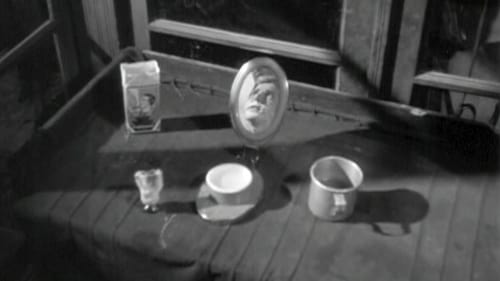
Screenplay
This Portuguese drama examines the daily life minutiae and intrigues of two scions of society in the rural village where they live. One is a wealthy landowner, the other a widowed aristocrat who lives in a world of her own.

Director
This Portuguese drama examines the daily life minutiae and intrigues of two scions of society in the rural village where they live. One is a wealthy landowner, the other a widowed aristocrat who lives in a world of her own.

Director
A short film by Fernando Lopes.

Director
Short film by Fernando Lopes, decisive figure of the Portuguese New Wave.

Director
Short film by Fernando Lopes, decisive figure of the Portuguese New Wave.

Director
Short film by Fernando Lopes, decisive figure of the Portuguese New Wave.

Director
Short film by Fernando Lopes, decisive figure of the Portuguese New Wave.

Director
Short film by Fernando Lopes, decisive figure of the Portuguese New Wave.

Production Design
Former boxing champion Belarmino answers a psychological facing the camera in close-up. Then the camera follows him in his daily routine, at home with his family, oggling the women and working as doorman to a night-club, as well as the of training and boxing sessions.

Writer
Former boxing champion Belarmino answers a psychological facing the camera in close-up. Then the camera follows him in his daily routine, at home with his family, oggling the women and working as doorman to a night-club, as well as the of training and boxing sessions.

Director
Former boxing champion Belarmino answers a psychological facing the camera in close-up. Then the camera follows him in his daily routine, at home with his family, oggling the women and working as doorman to a night-club, as well as the of training and boxing sessions.

Director
Short film by Fernando Lopes, decisive figure of the Portuguese New Wave.

Director
The production and the economic and social relevance of electric cables, may be watched as abstract art to the tunes of jazz.

Director
Short film by Fernando Lopes, decisive figure of the Portuguese New Wave.

Writer
Documentary short film on the city of Évora, Portugal. Usually regarded as the first film of the Portuguese New Wave.

Director
Documentary short film on the city of Évora, Portugal. Usually regarded as the first film of the Portuguese New Wave.

Director
A TV movie by Fernando Lopes.
